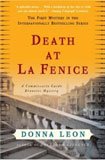The legend is that the same man wrote the Nancy Drew mysteries and the Hardy Boys mysteries. That’s not quite true, as I just learned from reading a wonderful article in The New Yorker. A guy named Edward Stratemeyer, a superb writer, came up with the idea of book series aimed at kids, and with continuing characters. But he didn’t have time to write them all. So, being quite the entrepreneur, he developed the idea of a “publishing syndicate.” He would send a writer an outline for a book, just enough to get him going, that person would write the book, then Stratemeyer would edit it for consistency and quality. This started around 1906 with a series called the Rover Boys. He eventually had 14 series going at once, with a slew of writers cranking the books out.
The books were basically ghost-written, and then published under the same name. In the case of Nancy Drew, it was “Carolyn Keene,” although a young college grad named Mildred Wirt wrote 23 of the first 30 Nancy Drew books. That became Stratemeyer’s best-selling series, eclipsing the Hardy Boys, Bobbsey Twins, and Tom Swift.
I used to read some of Mom’s Nancy Drew books, and I thoroughly enjoyed them. My wife, Pam, has the whole series, too. Now I find out that we probably didn’t read the same books. In 1959, the whole line of Nancy Drew books was updated. Among other things, Nancy’s age increased from 16 to 18. Offensive stereotypes were expunged. Lots of stuff. Those are the books most of today’s readers remember. But I had Mom’s books, which predated 1959. I’m sure they were more pure and wholesome.
The Hardy Boys books, which came before Nancy Drew, attracted severe criticism from educators and librarians. They said “the harm done is simply incalculable.” The series would “debauch and vitiate” a child’s imagination. The books were simply escapist, with no overriding moral theme. Keep in mind that in the early 1900s, most kids were growing up on farms, and kids worked hard. For a boy to lay around reading a mystery book…that probably didn’t sit well with farm dads.
So I’m thinking of parallels. Despite the early condemnations, today people look at Nancy Drew and the Hardy Boys as good, clean, safe reading for any kids. The TV shows I watched during my childhood were probably blasted by conservative Christian groups, though we now look back on 1960s TV fare and say, “That was good, wholesome entertainment.” People used to rant about how families didn’t converse with each other or do things together–they just sat in a room like a bunch of zombies and stared at the boob tube. So people claimed. But today, families don’t even do that together–each member of the family has a TV or computer or X-Box in his/her own room, and they part ways for the evening. I remember very fondly my whole family looking forward to Friday night, when we would don our PJs (with the built-in feet) and gather in the family room to watch “Friday Night at the Movies.” Mom would make her wonderful buttered popcorn, and we’d have Pepsi. Good times. Are there families today that spend the evening watching, together, “Desperate Housewives”? I hope not.
Until the mid-to-late 1800s, the United Brethren church had some strict rules against music. We outlawed choirs in 1861, reasoning that everyone was supposed to sing at the same time, not just part of the congregation. In 1865, we outlawed using instrumental music in church services. Those prohibitions were removed in 1885, and I’m sure people, being people, decried it as the liberalizing of the church.
In my lifetime, I’ve seen how shocked people are when we add drums and guitars to a traditional hymn. Imagine in the 1800s when people, for the first time, heard a mere piano used with a hymn, instead of singing only acapella. Maybe there were fierce debates about adding an organ along with the piano, and people who complained that the newfangled organ sounds just didn’t go right with a hymn. Of course, the piano-organ thing was the norm for me.
In my church, we’re doing some of the new songs that combine a hymn with a few new lyrics. Like Todd Agnew’s “Grace Like Rain” (Amazing Grace) and Chris Tomlin’s version of “When I Survey the Wondrous Cross.” Today’s generation, having never heard the unadulterated hymnbook version, will assume that that’s how it was originally written. Just like readers of Nancy Drew after 1959 assumed they were getting the original book, when actually it was an older, more contemporary Nancy Drew.
I guess we shouldn’t be quick to criticize changes in society or the church. Because, 20 years down the road, we’ll probably wonder what all the fuss was about.


 Commissioner Guido Brunetti never displayed a hint of violence, and guns weren’t mentioned in the whole book. I loved this piece of description early on about Brunetti: “His clothing marked him as Italian. The cadence of his speech announced that he was Venetian. His eyes were all policeman.” Superb!
Commissioner Guido Brunetti never displayed a hint of violence, and guns weren’t mentioned in the whole book. I loved this piece of description early on about Brunetti: “His clothing marked him as Italian. The cadence of his speech announced that he was Venetian. His eyes were all policeman.” Superb!


